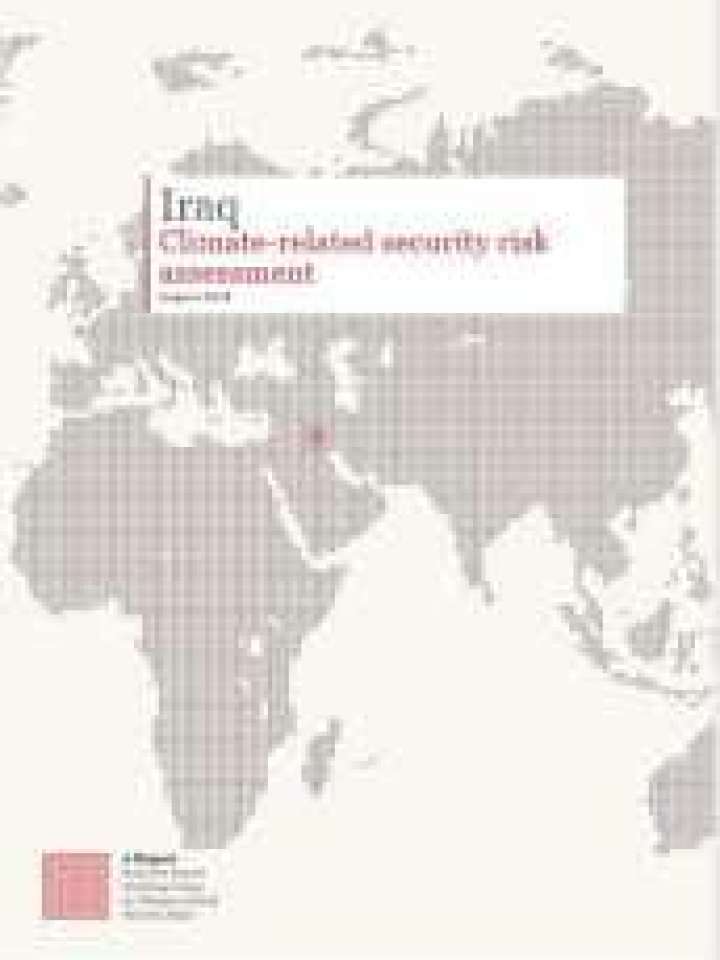Iraq: Climate-related security risk assessment
One year on from the military success against ISIS, Iraq has reached a crossroads where sustainable peace is far from inevitable. To tackle the security risks facing post-ISIS Iraq, terrorism, socio-political and economic challenges need to be addressed together with climate-related security risks.
Iraq is one of the Middle East’s most climate vulnerable countries. The combination of its hydrological limitations, increasing temperatures and extreme weather events puts pressure on basic resources and undermines livelihood security for Iraq’s population. Failure to monitor and manage these climate-related risks will increase the risk of ISIS and post-ISIS terrorist groups gaining support and regaining strength within resource-constrained communities.
Amid this complex risk landscape, this report has identified five priority climate-related security risks in Iraq:
- Diminished agricultural livelihoods increase local support for terrorist groups
- Insufficient governance capacity to address and respond to climate change and environmental degradation
- Increased dependence on water flows from riparian neighbours and regional stability
- Mass displacement and forced migration
- Heightened communal tensions over access to food and water
Explore further
